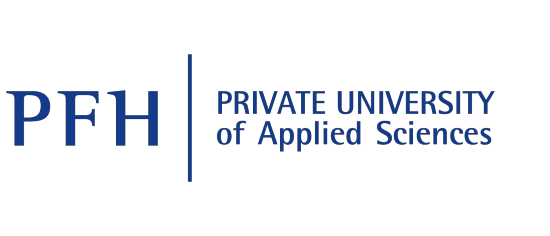
Requirements for Studying MS in Germany
The idea of studying in Germany, a beautiful and culturally rich country is undoubtedly exciting, but it’s essential to be well-prepared and informed about the requirements you’ll need to meet. Whether you’re drawn to Germany’s world-renowned universities, exceptional quality of education, or the opportunity to immerse yourself in a diverse and dynamic environment, this blog will be your guide you through.
Why MS in Germany
Studying for an MS in Germany offers remarkable advantages:
- Renowned education system
- Innovative curriculum
- World-class faculty
- Germany’s cultural richness
- Welcoming environment
- Programs offered in English
- Abundant internship and career opportunities.
All these factors make pursuing an MS in Germany an appealing option for a high-quality education, valuable experiences, and a head start in your career provided you are able to meet the requirements for studying MS in Germany.
Admission Requirements for Studying in Germany
Admission requirements for German universities generally involve an Abitur or equivalent for bachelor’s programs, a relevant bachelor’s degree for master’s programs, and a master’s degree for doctoral programs. Language proficiency in German or English is essential, and a valid passport is required for identification and visa purposes. Applicants often submit a motivational letter and demonstrate financial means for living expenses. The university’s admission guidelines must be read, as requirements may vary.
Admission requirements for higher education in Germany vary between bachelor’s, master’s, and doctoral programs, and there’s a notable emphasis on the Studienkolleg for some students.
Studienkolleg are crucial for students whose school-leaving certificates aren’t initially recognized as an equivalent of the “Abitur.” These preparatory courses act as a bridge to higher education, focusing on the German education system, language proficiency, and specific academic subjects. Upon completing a Studienkolleg, students must pass the “Feststellungsprüfung” (FSP) to qualify for a bachelor’s program at any German university.
Bachelor’s Programs: To enroll in a bachelor’s program, you typically need a high school diploma equivalent to the “Abitur” or “HZB” qualification. If your school-leaving certificate isn’t recognized, Studienkollegs come into play. These preparatory courses, lasting 1 to 2 semesters, bridge the educational gap. Depending on your desired field, different types of Studienkollegs exist, like M-course for medical-related courses and W-course for business and social sciences.
Master’s Programs: Requirements for studying MS in Germany, you’ll need an accredited bachelor’s degree in a relevant field, language proficiency, and standard documents such as a passport, CV, motivation letter, and proof of finances.
Language proficiency varies based on the language of instruction, with common English tests like IELTS and TOEFL accepted. German language skills may be necessary for some public universities.
Proof of financial support can be demonstrated through a blocked account, which requires a minimum annual living expense transfer before arriving in Germany.
Document Requirements for Studying MS in Germany
Applying for a Master’s program in Germany necessitates the submission of specific documents that not only validate your educational background but also establish your identity to universities and the German consulate. These prerequisites or requirements for studying MS in Germany include:
- Academic Documents/Transcripts
- Bachelor’s Degree Certificate
- TOEFL/IELTS Score
- Curriculum Vitae (CV)
- Statement of Purpose (SOP)
- Letters of Recommendation (LORs)
- Motivation Letter
- Certificates of Extracurricular Activities Participation
- Work Experience Letters (if required)
- Passport-Sized Photo
Once you’ve made university choices, you must check specific application deadlines and requirements.
Language Requirements for Pursuing MS in Germany
Meeting the language proficiency requirements is a crucial step in the admission process. Language competency is assessed through various tests, depending on the chosen language of instruction.
German Proficiency Tests: Students aiming to study in German can choose from several standardized language tests, including the Deutsche Sprachprüfung für den Hochschulabschluss (DSH), Deutsches Sprachdiplom der Kultusministerkonferenz (DSD II), Test Deutsch als Fremdsprache (TestDaF), Telc Deutsch C1 Hochschule, Goethe Certificate B2, Telc Deutsch C1 Hochschule, or a combination of these assessments.
English Proficiency Tests (IELTS, TOEFL, and PTE): Additionally, for programs offered in English, English proficiency is assessed through tests like IELTS (International English Language Testing System), TOEFL (Test of English as a Foreign Language), and PTE (Pearson Test of English). These tests play a role in the qualification assessment process, with some universities also conducting personal interviews as part of their evaluation.
Intakes to Study in Germany
academic intakes available. German universities primarily offer two Master’s intakes:
Summer Intake: The summer semester typically spans from March to August or April to September, with application deadlines often falling before January.
Winter Intake: The winter semester extends from September to February or October to March, and deadlines for this intake usually fall before July.
It’s worth noting that each university establishes its specific application deadlines. To meet the requirements for studying MS in Germany and ensure a well-organized application process, students are advised to apply at least four months in advance, providing ample time to meet the requirements and apply for a visa if necessary.
The Best Way to Choose a University for a Master's Course in Germany
When it comes to fulfilling the requirements for studying MS in Germany, selecting the ideal university can seem like a challenging task. Germany offers a multitude of options, but your decision should ultimately revolve around your genuine passion for the subject. The critical distinction lies in whether your primary focus is academic. In such cases, attending a Research or Technical University may be the right choice.
Conversely, if you aim to acquire vocational expertise and develop professional skills, the University of Applied Sciences may be more suitable. For those with a strong creative inclination, Germany’s rich artistic heritage opens doors to postgraduate programs at Colleges of Art, Film, and Music, providing an environment conducive to nurturing creativity and artistic talents.
Job After Pursuing an MS from a German University
After meeting the requirements for studying MS in Germany and completing their Master’s degree programs, international students are granted the opportunity to pursue employment in the country. Graduates with a Master’s degree from Germany (MS in Germany) can benefit from a post-study work visa, allowing them to work in Germany for up to 18 months.
This 18-month period in Germany is often referred to as a post-study work permit, during which candidates have the freedom to engage in independent work or accept various employment opportunities to sustain themselves. Additionally, for those considering a more permanent stay in Germany, it is possible to apply for an ‘EU Blue Card’ Residence Permit as early as two years after obtaining their work visa.
Conclusion
In summary, meeting the requirements for studying MS in Germany is the key to accessing the country’s world-class education. As international students explore a diverse range of Master’s programs, it’s crucial to consider the prerequisites, such as academic qualifications and language proficiency. Once the Master’s program is completed, an 18-month post-study work visa offers the chance to gain valuable work experience in Germany. This dynamic and welcoming country not only nurtures academic growth but also presents promising career prospects. Pursuing a Master’s degree in Germany is a transformative journey that opens doors to a world of opportunities.

